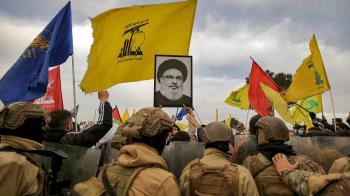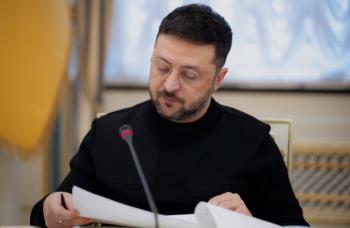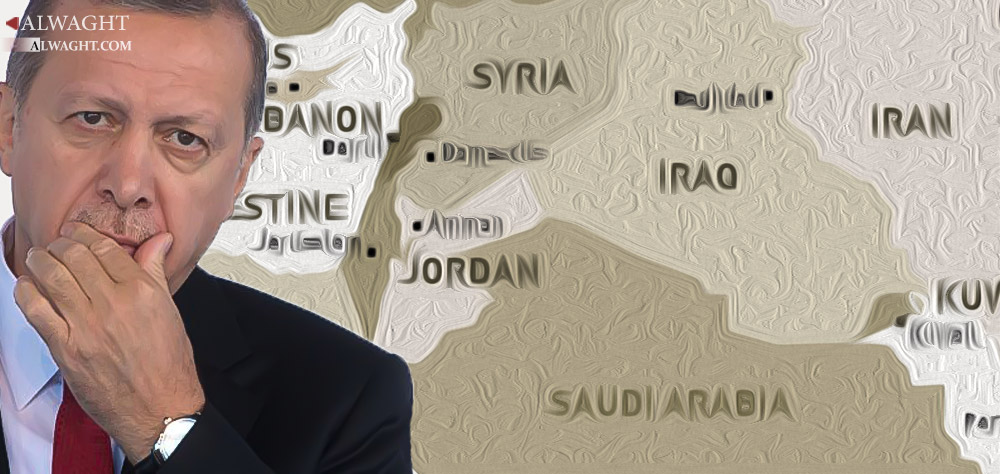Alwaght- The recent developments of Syria, Turkey’s neighbor, as well as the areas surrounding it have highly influenced Ankara’s foreign policy. The exchanged visits by the Saudi and Turkish officials and the two countries’ expansion of ties along with the speculations that suggest Turkey is eyeing resumption of diplomatic ties with the Israeli regime all indicate a change in Ankara’s approach.
On the other hand, we observe the growing tensions between Turkey and Russia, as we see a growing degree of challenges of Ankara with such neighbors as Iran. Looking from this aspect, two types of factors are impacting the shift of attitude of Turkey towards its neighbors and also the region.
The First is the strategic vision that dominates and actually governs the Turkish foreign policy. In the viewpoint of the politicians and foreign policy–makers of Turkey the regional balance of power to a degree has been changed against the interest of Ankara, therefore, Turkey is eyeing arranging for introducing fresh balance of power to the region and thus all of the Turkish struggles to improve relations with Saudi Arabia- while the kingdom is facing an array of challenges like in Yemen, Iraq and Syria- are seen to be moving towards this intended Turkish aim.
At the same time, Saudi Arabia is holding negotiations to pave the way for diplomatic rapprochement between Turkey and Egypt. Referring to the type of the Turkish strategy of the region in his book the “Strategic Depth”, Ahmet Davutoglu, the Prime Minister of Turkey, has highlighted the need for creating balance in ties with the major regional countries like Iran, Egypt, Saudi Arabia and then Iraq and other states.
Having this Turkish vision as a criteria, we can see that Ankara has begun to move towards fresh alternatives due to its growing concerns which are caused by challenges facing its policy in Syria and its conflict of interests with other players which are engaged in the region and in the Syrian crisis. Favoring Saudi Arabia as a partner along with showing willingness to normalize diplomatic contacts with the Israeli regime are considered as some steps taken by Ankara which seeks alternatives to its current policy.
Having this in mind, it seems that Ankara is looking forward to form a new version of balance of power across West Asia in a bid to scale down the vulnerability of its regional partnerships, or to put it another way, Ankara intends to form a kind of political alliance and partnership in the region in order to take on other major players in the region.
The second factor is the new Syrian conflict’s conditions on the one hand and the underway battlefield operations, the Syrian government forces’ wining the upper hand in battle and the stepped up Russian airstrikes on the other hand. All these factors have put some strategic strains on the Turkish policies towards its neighbors, making Turkey severely concerned about the future developments in Syria. The situation in Syria’s Kurdish-inhabited regions is never favorable for Ankara. Reacting to the new conditions, the Turkish President Recep Tayyip Erdogan has said that establishing autonomous (Kurdish) regions inside Syria was a Turkish red line.
Assessing the new developments of northern Syria as posing threats to Turkey’s national security and interests, Ankara is worried that political motions of the Syrian Kurds could, at the end of the road, encourage Kurdish demands inside Turkey itself, as Ankara is also worried that strong Kurdish regions would shore up the position of the Kurdistan Workers’ Party (PKK) in the Syrian and Iraqi game fields. Turkey since last year has put high on the agenda the approach of confronting the Kurds at home as well as those active in border areas including the PKK forces and Syria’s pro-PKK Kurdish militant forces. Such an Ankara’s move is in fact originating from the Turkish concerns over the future and prospects of the Kurdish conditions in Syria. Many of the analysts suggest that Ankara is uninterested to see development of circumstances of the Kurdish areas in Syria while it is standing without action.
Turkey has been watching closely the motions and efforts of establishing Kurdish autonomous cantons, as it has announced opposition to this establishment. It is expected that Turkish collision with the Kurdish cause in Syria witnesses an intensification. It must be noted that Syria’s Kurdish issue is not the only factor making Turkey concerned. It should not be ignored that during the past four years Turkey has spearheaded the regional camp that confronts the pro-Syrian front.
The Turkish government, or at least Erdogan’s Justice and Development Party, and Syria’s President Assad have been on a collision course since the beginning of conflict in Syria. The Turkish leaders have emphasized on removal of Assad from power as a solution to the Syrian crisis.
All in all, the conditions of Syria’s north and Turkey-Syria borders have brought forth some concerns for Ankara, mostly related to the Kurdish issue in Syria. Besides, the shifting balance of power in the region and efforts made to create a new balance are seen to shape Turkey’s new attitudes and policy in West Asia region.



























